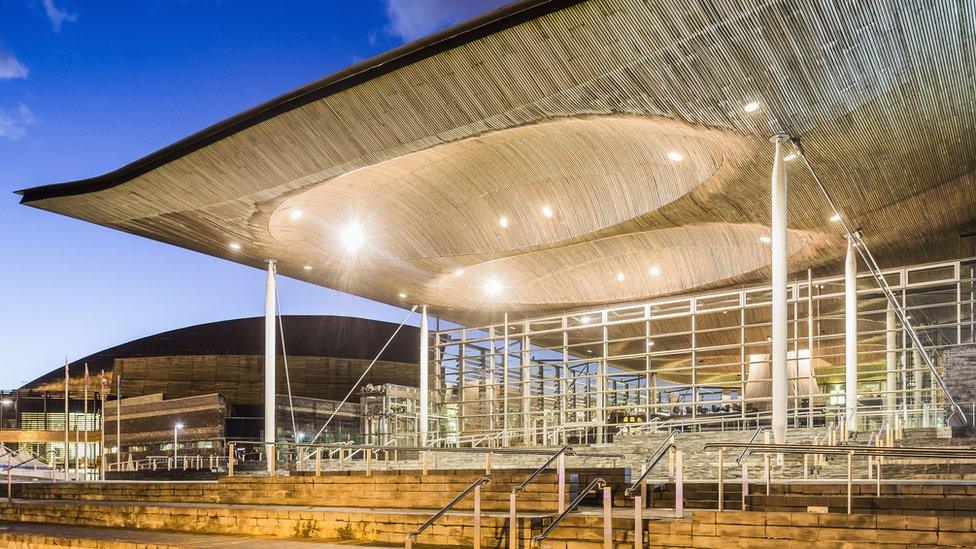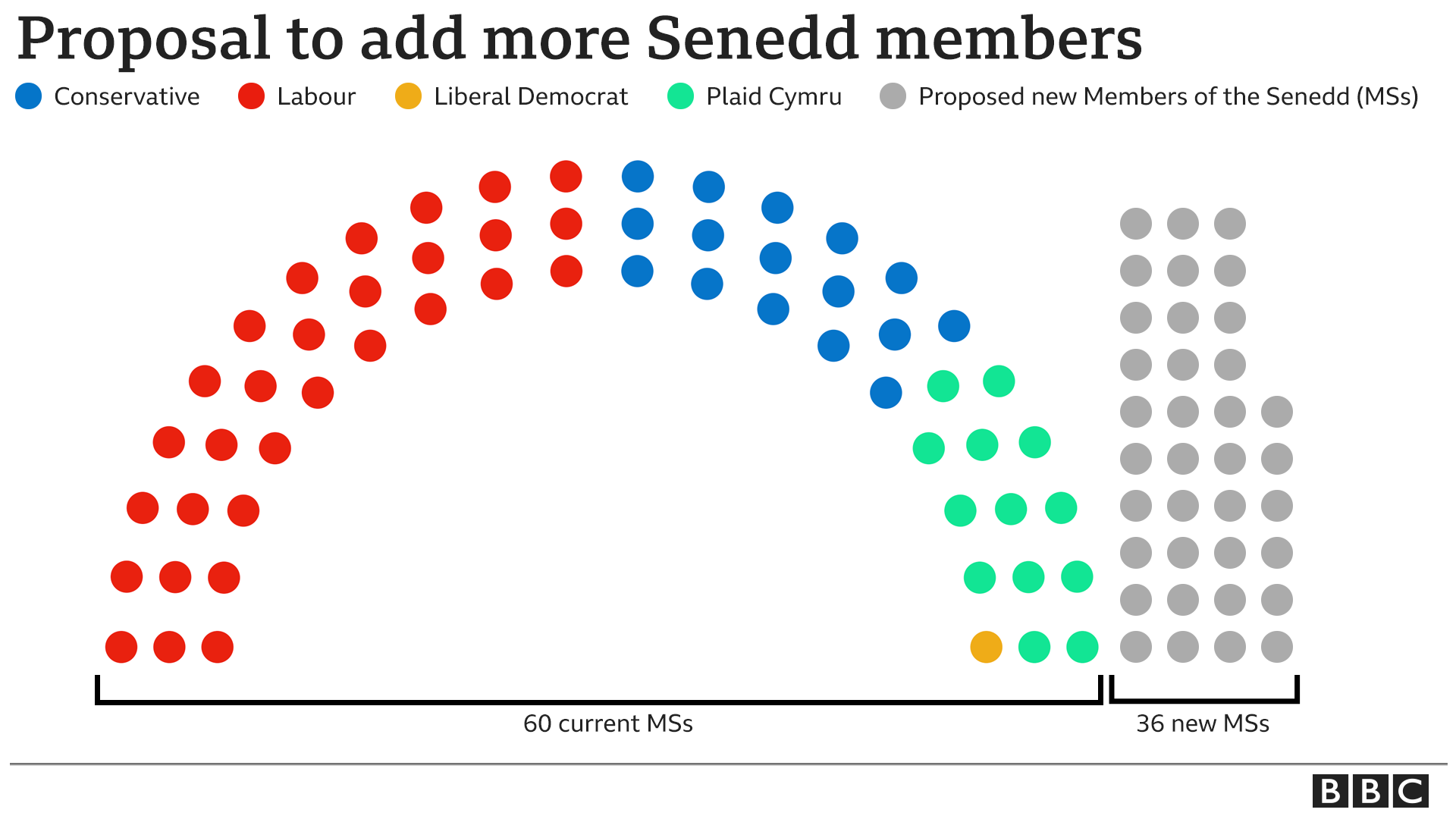Senedd reform: Expansion plans no stitch-up, says minister
- Published

A minister has denied proposals to expand the Senedd are a Labour-Plaid Cymru "stitch-up" to exclude smaller parties.
Welsh Liberal Democrat leader Jane Dodds has warned the proposed voting system could hurt her party and others.
Deputy Climate Change Minister Lee Waters said he understood the anxiety but "I don't think it's borne out by the modelling and the evidence".
He said it needed explaining to voters why it was "the right thing to do".
"We've come together on a set of proposals that both parties have had to compromise on," he told BBC Wales, in the first interview with a government minister since the plans were revealed.
"Nobody gets what they want 100% out of this, but the big picture is progress."
Labour and Plaid Cymru have agreed on a 96 seat Welsh Parliament, 36 more than now, with mandatory gender quotas.
But there are concerns the system will not fully reflect how people vote.
Under the plans the public would vote for parties, rather than candidates, with 96 Members of the Senedd (MSs) spread over 16 constituencies.
It would use what is known as a "closed list system" - similar to how European Parliament elections worked in Great Britain before Brexit - where voters back a party list rather than a candidate, and cannot reject any individual candidates nominated.
Parties would be forced to nominate lists equally made up of men and women, with candidate lists alternating between men and women in a system known as zipping.

Mr Waters said: "We get 96 members under this proposal, we've got at least as proportional a voting system (as currently) and I think that is a huge step forward.
"Now, when it comes to the detail, there's going to be disagreement.
"Everybody's got their own favourite electoral system, and not one electoral system is without its drawbacks, but taken in the round, this is a real step forward."
The proposals were "nobody's stitch-up", he said, but rather a "carefully worked out agreement of mature grown up consensus".
"Both parties have had to compromise. Mark Drakeford didn't get everything he wanted, Adam Price didn't get everything he wanted.
"But they've maturely said 'this is what we can agree on, and this is what we think is best for Wales'.
"And it gives us a law-making tax raising parliament that is up to the task of scrutinising the government and taking Wales forward."
What do people think about plans to increase the number of politicians in Wales?
Mr Waters agreed that there was a need to explain why the plans were required as people "don't like the idea of more politicians".
"A larger, more powerful Senedd is consistently voted in the opinion polls as a popular thing, the people of Wales value our institution and they want it to be effective," he said.
"Once we explain that it'll be fewer MPs coming from Wales, there are no longer four MEPs that we had when we were part of the EU, and the overall costs are reasonable within the sort of budget we're talking about."
The minister said the Senedd has a "vital role in holding ministers and governments to account and with the 60 members, it can't do the job as a law-making tax raising parliament and it needs to be reformed and there's now cross-party consensus to achieve that reform".
"And, of course, we have to explain that and tell people why that's the right thing to do," he added.